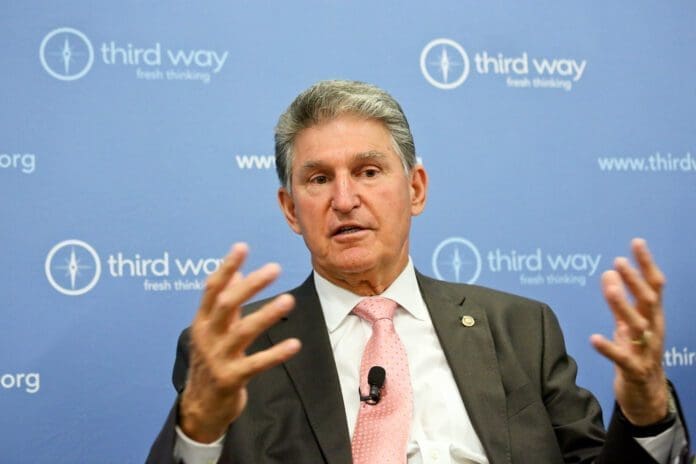The other day, I was part of a group that was given some in-person time with Senator Manchin to talk about the huge reconciliation package that Congress is slated to vote on sometime in the near future. We were there to tie the Child Tax Credit expansion to a decrease in child hunger here in West Virginia and a decrease in poverty overall.
We shared with him what families have shared with us: How this money is being spent on things like food, clothes and supplies for school, car repairs, rent … the list goes on and on.
We touched on other parts of the care infrastructure with Senator Manchin, such as child care and the SNAP expansion, and made a general plea for the bill to be passed because of all the good these pieces are doing. My job is collecting stories, right, so I was prepared to share with him the positive impacts these supports are having. But how do you get someone to understand that if we provide assistance in the ways it’s needed that families here can actually climb out of that poverty pit?
Assistance, when ample and successful, shouldn’t be necessary forever, and so many of us just need a boost up. I shared with the Senator how I found myself on the receiving end of a miraculous blessing last year when a real estate developer bought our home. I explained how I was able to move my family out of a low-income neighborhood into a middle-class one, which was a huge step. I also explained how that step alone changed my path.
Once we moved into a house that hadn’t been neglected for years because of lack of resources, I was able to save all the way around. Granted, it’s summer, but my gas bill was $27.32 last month. The largest bill I had last winter was 100 bucks, which is a far cry from the ones I used to pay upwards of $300. My highest electric bill here, with central air, has been $140. I was on the budget in a third-floor apartment and was paying $176 a month before. This house is smaller, but all the things in it are new. I had a new furnace and central air put in, and that alone was a huge blessing.
I was also able to pay off bills that had been pulling me down. My kids were ecstatic last year because they had more than one pair of shoes to start school in and enough outfits to not have to do laundry in the middle of the week. We bought all new appliances when we moved in. I don’t know if I’ve ever been happier than move-in day, to be honest. There’s something about starting completely over that was life giving.
Escaping poverty is like construction: You need a foundation that is strong enough for you to build onto. Poverty is like worrying about the roof leaking and drooping when the front door has fallen off the hinges. Which repair do you choose? Even if you can afford to replace the door, you’re so worried about the roof that you never get to fully appreciate the fact that you have a new door. No one is going to compliment you on the new door, either, because they’re too busy judging you because you didn’t fix the roof.
But what if someone provided you with the tools necessary to start remodeling? What if someone shored up your foundation? What would it mean if they expanded child care so you could not only work but do it knowing that your child was well taken care of by people who understood child development and who were not working for poverty wages themselves. Your child would be nurtured in all areas of development while you were able to focus on sewing your bootstraps.
Once you had childcare, you could focus on working or going to school. If your job had paid leave, you wouldn’t have to worry about the days your kids were sick or a family member needed you because you would have the ability to not choose between lost wages or family. The extra money from the Child Tax Credit would make it feel as if the sky wasn’t falling, and you wouldn’t worry about the roof over your head.
I escaped poverty because I had the money to do so from a once-in-a-lifetime opportunity, but nearly 400,000 West Virginian children could see it happen for their families if Congress would pass this reconciliation bill. They want to fund it by taxing the rich, and a very small percentage of West Virginians would even be responsible. Please call your senators and ask them to Build Back Better.
Onward,
Amy Jo


